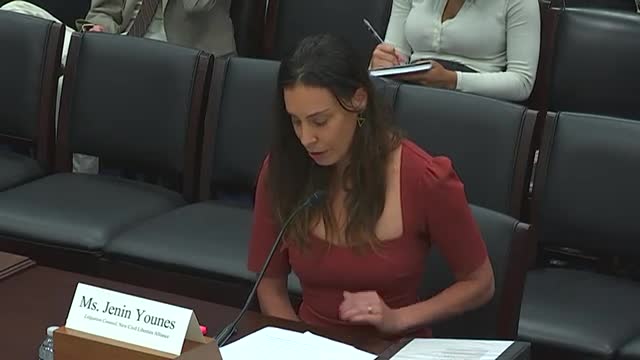Censorship complex threatens free speech in America
June 27, 2024 | Small Business: House Committee, Standing Committees - House & Senate, Congressional Hearings Compilation

This article was created by AI summarizing key points discussed. AI makes mistakes, so for full details and context, please refer to the video of the full meeting. Please report any errors so we can fix them. Report an error »

In a recent government meeting, significant concerns were raised regarding the intersection of free speech and government involvement in censorship. A key point of discussion centered on Supreme Court jurisprudence, which asserts that the government cannot utilize private entities to achieve what it is constitutionally prohibited from doing directly. This principle was highlighted through the case of Norwood versus Harrison, emphasizing that the government must not induce private individuals to carry out actions it cannot do itself.
Critics of current censorship practices pointed out that programs targeting conservative speech raise serious First Amendment concerns, labeling such actions as viewpoint discrimination. One speaker, identifying as left-leaning, expressed alarm over the government's role in determining acceptable speech, arguing that this undermines individual dignity and the foundational principles of the First Amendment. The speaker contended that the solution to misinformation lies not in censorship but in counter-speech, asserting that censorship merely drives problematic ideas underground rather than eliminating them.
The discussion also touched on the implications of government censorship, particularly in the context of changing political administrations. Concerns were raised about the potential for future administrations to misuse censorship tools against dissenting voices, urging a reevaluation of the government's role in regulating speech.
The meeting underscored the belief that a free press and free speech are essential to democracy, warning that the current \"censorship industrial complex\" poses a threat to these democratic ideals. Participants called for vigilance against government overreach in the marketplace of ideas, advocating for a system where individuals can freely evaluate competing claims without governmental interference.
Critics of current censorship practices pointed out that programs targeting conservative speech raise serious First Amendment concerns, labeling such actions as viewpoint discrimination. One speaker, identifying as left-leaning, expressed alarm over the government's role in determining acceptable speech, arguing that this undermines individual dignity and the foundational principles of the First Amendment. The speaker contended that the solution to misinformation lies not in censorship but in counter-speech, asserting that censorship merely drives problematic ideas underground rather than eliminating them.
The discussion also touched on the implications of government censorship, particularly in the context of changing political administrations. Concerns were raised about the potential for future administrations to misuse censorship tools against dissenting voices, urging a reevaluation of the government's role in regulating speech.
The meeting underscored the belief that a free press and free speech are essential to democracy, warning that the current \"censorship industrial complex\" poses a threat to these democratic ideals. Participants called for vigilance against government overreach in the marketplace of ideas, advocating for a system where individuals can freely evaluate competing claims without governmental interference.
View full meeting
This article is based on a recent meeting—watch the full video and explore the complete transcript for deeper insights into the discussion.
View full meeting